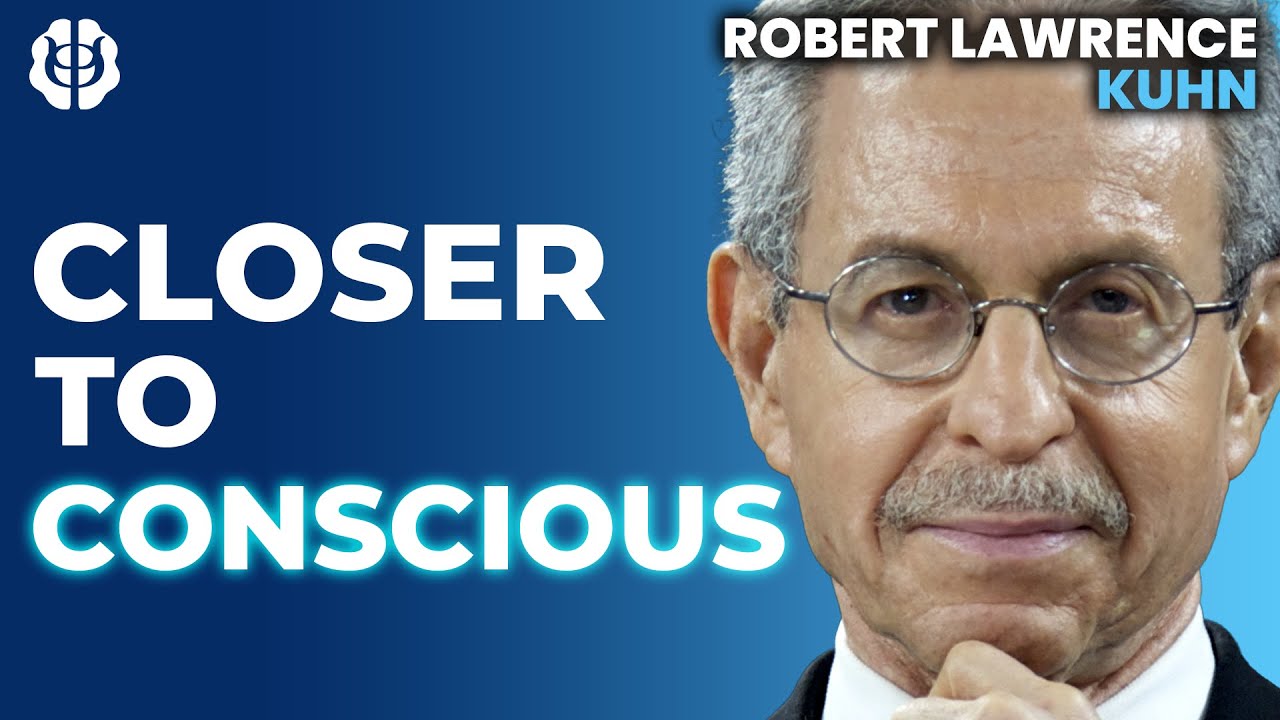A Deep Dive into 'A Landscape of Consciousness': Exploring the Framework

Welcome back to the podcast blog! In this post, we're diving deep into a fascinating project: 'A Landscape of Consciousness,' conceived by Robert Lawrence Kuhn of Closer To Truth. This blog post is an expansion of our recent podcast episode, Robert Lawrence Kuhn: A Landscape of Consciousness? Toward a Taxonomy of Explanations & Implications, where we explored the intricate structure, categories, and the philosophical and scientific theories that it encompasses. We'll delve into the criteria used for including specific theories, the unique format chosen for presenting such complex ideas, and the implications of this project for understanding consciousness itself. Join us as we unpack this intriguing endeavor.
Introduction to 'A Landscape of Consciousness'
'A Landscape of Consciousness' is a unique endeavor aimed at categorizing and exploring the diverse range of theories that attempt to explain consciousness. It's not a theory itself, but rather a framework for understanding the landscape of existing theories. Robert Lawrence Kuhn, the creator of Closer To Truth, has meticulously crafted this project to provide a structured overview of the various perspectives on consciousness, ranging from materialistic to dualistic and beyond. The goal is to offer clarity and insight into this complex and often bewildering field. It’s more than just a list; it's a carefully curated taxonomy designed to illuminate the relationships and distinctions between different approaches to understanding consciousness. This includes everything from Integrated Information Theory to Global Workspace Theory and even panpsychism.
The Genesis of 'A Landscape of Consciousness' within Closer To Truth
The seeds of 'A Landscape of Consciousness' were sown within the extensive work of Closer To Truth. Over decades, Robert Lawrence Kuhn interviewed hundreds of leading scientists, philosophers, and thinkers on the topic of consciousness. These conversations revealed a vast and often conflicting array of theories and perspectives. It became clear that a structured framework was needed to navigate this complex intellectual terrain. The project emerged from a desire to organize and synthesize the wealth of information gathered through Closer To Truth. Kuhn recognized that simply presenting individual theories wasn't enough; there was a need to map out the relationships between them, identify common themes, and highlight the key points of contention.
Why Not a Book? Exploring the Chosen Format
One might wonder why 'A Landscape of Consciousness' wasn't presented as a traditional book. Kuhn made a conscious decision to avoid the book format, primarily because he wanted to create a dynamic and evolving resource. A book, once published, becomes static and difficult to update. In contrast, the chosen format—a detailed paper, now being expanded into an online project—allows for continuous refinement and the incorporation of new theories and perspectives as they emerge. The landscape of consciousness research is constantly changing, with new discoveries and ideas challenging existing paradigms. By opting for a more flexible format, Kuhn aimed to create a resource that could adapt to these changes and remain relevant over time. This decision reflects a commitment to capturing the dynamic nature of the field and providing a resource that stays current with the latest developments.
The Unintentional Early Release and Robert's Response
The initial release of 'A Landscape of Consciousness' was not without its challenges. The paper was prematurely published, unintentionally making it available to the public before it was fully ready. This early release created a flurry of attention and discussion, which was both exciting and concerning for Kuhn. While he appreciated the interest in the project, he was also aware that the initial version was still a work in progress. Kuhn responded to the early release with characteristic grace and transparency. He acknowledged the premature publication and emphasized that the project was still evolving. He welcomed feedback and suggestions from the scientific and philosophical communities, using the opportunity to further refine and improve the framework. This open and collaborative approach reflects Kuhn's commitment to intellectual rigor and his belief in the power of collective intelligence.
Deconstructing the Format of 'Landscape'
The format of 'A Landscape of Consciousness' is carefully designed to maximize clarity and accessibility. It begins with a broad overview of the major categories of consciousness theories, such as materialism, dualism, and idealism. Within each category, specific theories are presented with concise summaries, key arguments, and relevant citations. The format also highlights the relationships between different theories, noting areas of agreement and disagreement. A key feature of the format is its emphasis on visual representation. The "landscape" metaphor is brought to life through diagrams and charts that illustrate the relationships between different theories and categories. This visual approach helps to make the complex information more digestible and allows users to quickly grasp the overall structure of the framework. Furthermore, the format includes detailed explanations of the criteria used for including specific theories, ensuring transparency and intellectual rigor.
Robert Lawrence Kuhn's Perspective on Consciousness
Robert Lawrence Kuhn, while presenting a neutral framework in 'A Landscape of Consciousness,' undoubtedly has his own perspectives on the nature of consciousness. Based on his extensive interviews and research, he tends to lean towards a materialistic view, but he remains open to considering alternative perspectives. Kuhn emphasizes the importance of empirical evidence and scientific rigor in the study of consciousness. He is skeptical of purely philosophical arguments that lack empirical support. However, he also recognizes the limitations of current scientific methods in fully explaining the subjective experience of consciousness. Kuhn's perspective is characterized by a commitment to intellectual honesty and a willingness to engage with diverse viewpoints. He sees the study of consciousness as a collaborative endeavor, requiring input from both scientists and philosophers.
Inclusion Criteria for Theories of Consciousness
The inclusion criteria for theories in 'A Landscape of Consciousness' are rigorous and well-defined. To be included, a theory must meet several key requirements. First, it must be a clearly articulated and well-developed explanation of consciousness. Second, it must be supported by some form of evidence, whether empirical, philosophical, or logical. Third, it must be influential and widely discussed within the scientific and philosophical communities. Kuhn also considered the originality and novelty of each theory. Theories that simply reiterated existing ideas without offering new insights were less likely to be included. The goal was to create a landscape that represented the most innovative and thought-provoking approaches to understanding consciousness. The decision-making process was also informed by feedback from experts in the field, ensuring that the landscape reflected a consensus view of the most important and relevant theories.
Feedback from Influential Thinkers
The development of 'A Landscape of Consciousness' involved extensive consultation with influential thinkers across various disciplines. Kuhn sought feedback from scientists, philosophers, and other experts to ensure the accuracy, completeness, and fairness of the framework. This feedback played a crucial role in shaping the final product. Some thinkers offered suggestions for additional theories to include, while others provided critiques of the existing categories and classifications. Many experts praised the project for its ambition and its potential to clarify the complex landscape of consciousness research. They appreciated the effort to create a structured overview that could be used by both experts and newcomers to the field. The feedback process was an essential part of the development of 'A Landscape of Consciousness,' ensuring that it reflected the best thinking in the field and met the needs of the research community.
Materialism and the Ten Categories
Within 'A Landscape of Consciousness,' materialism is a dominant category, encompassing a wide range of theories that attempt to explain consciousness in terms of physical processes. Kuhn has identified ten distinct subcategories within materialism, each representing a different approach to reducing consciousness to matter. These subcategories include computationalism, which views the brain as a computer processing information; eliminative materialism, which denies the existence of consciousness altogether; and emergentism, which argues that consciousness arises from complex interactions within the brain. The extensive categorization of materialism reflects its prominence in contemporary consciousness research. By breaking down materialism into distinct subcategories, Kuhn provides a more nuanced understanding of the different ways in which scientists and philosophers have attempted to explain consciousness in physical terms. This detailed categorization helps to clarify the key debates and points of contention within the materialistic perspective.
Implications of Consciousness Theories
Theories of consciousness have profound implications for our understanding of ourselves and the world around us. They touch on fundamental questions about meaning, purpose, value, and the nature of reality. For example, if consciousness is simply a product of brain activity, then what are the implications for free will and moral responsibility? If consciousness can be replicated in artificial intelligence, then what does it mean to be human? The implications of consciousness theories extend to a wide range of practical issues, including the treatment of mental illness, the development of AI, and the possibility of virtual immortality. Understanding the different theories of consciousness can help us to make more informed decisions about these important issues. 'A Landscape of Consciousness' provides a valuable resource for exploring these implications, offering a framework for understanding the diverse perspectives and their potential consequences. Specifically, the episode and this blog post examine topics like AI consciousness, virtual immortality, life after death, and free will.
Expanding 'Landscape': A New Online Project
The future of 'A Landscape of Consciousness' is bright. Robert Lawrence Kuhn is currently working on expanding the project into a comprehensive online resource. This online platform will provide a more interactive and dynamic way to explore the landscape of consciousness theories. Users will be able to easily navigate between different categories, compare theories, and access relevant research papers and articles. The online project will also incorporate multimedia elements, such as videos and audio recordings, to enhance the learning experience. Kuhn envisions the online platform as a collaborative space where researchers, students, and anyone interested in consciousness can come together to learn, share ideas, and contribute to the ongoing development of the landscape. This expansion reflects Kuhn's commitment to making the study of consciousness more accessible and engaging for a wider audience.
Conclusion
'A Landscape of Consciousness' is a remarkable project that offers a valuable framework for understanding the diverse and complex world of consciousness theories. By categorizing and organizing these theories, Robert Lawrence Kuhn has provided a much-needed roadmap for navigating this challenging intellectual terrain. Whether you're a seasoned researcher or a curious newcomer, this project offers insights and perspectives that can deepen your understanding of consciousness. We hope this blog post has provided a comprehensive overview of 'A Landscape of Consciousness' and its implications. Be sure to check out our full discussion with Robert Lawrence Kuhn in our latest podcast episode: Robert Lawrence Kuhn: A Landscape of Consciousness? Toward a Taxonomy of Explanations & Implications to hear directly from the creator himself.
Explore Dr Kuhn's Landscape of Consciousness website and access 350 theories of consciousness in five ways (plus Search and AI):
Thank you for joining us on this exploration, and we look forward to continuing the conversation in future episodes!








